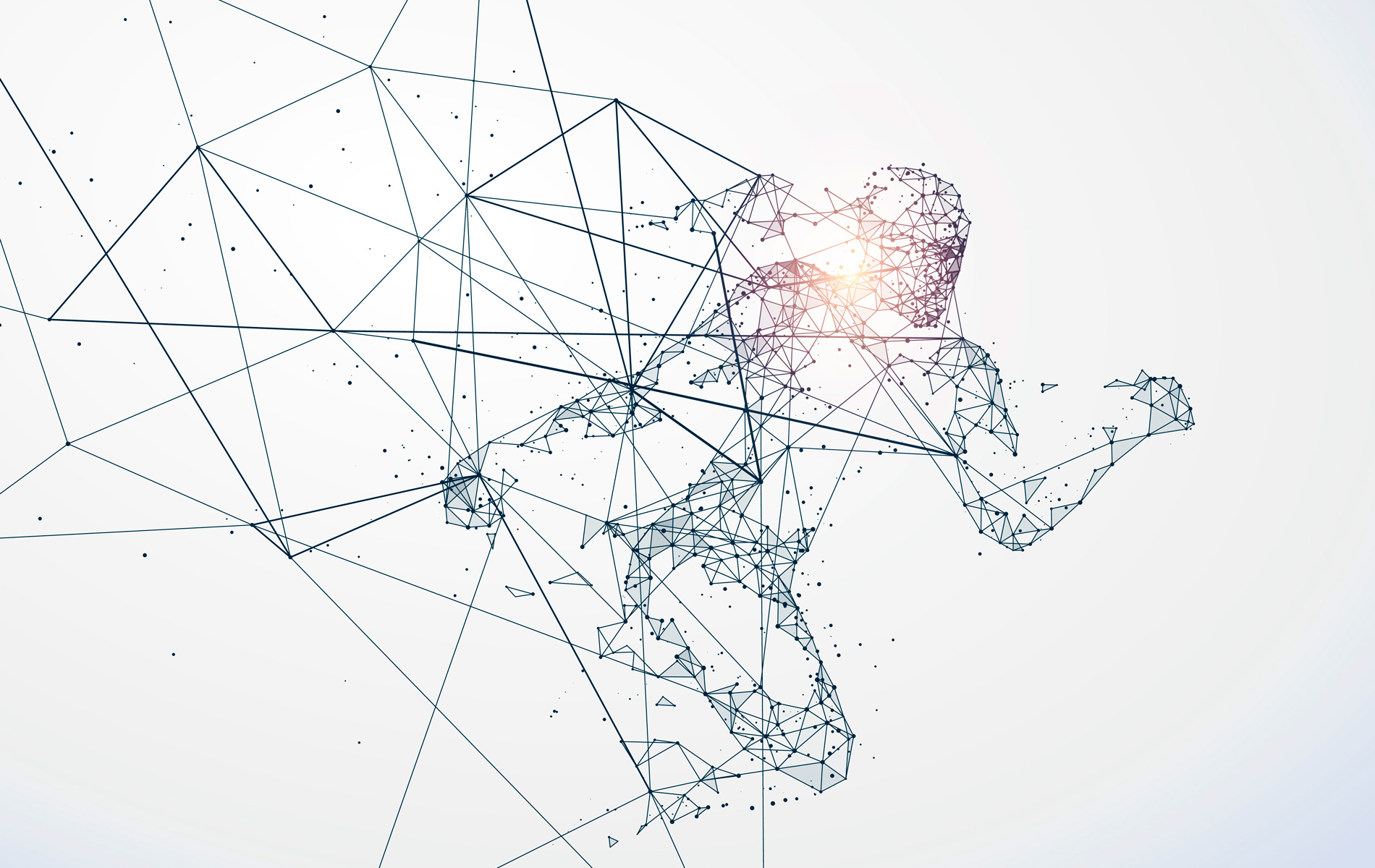Predictive analytics, for instance, offers insights into case outcomes, while AI-driven contract analysis tools are reshaping due diligence processes.
These advancements are not just about doing things faster; they’re about doing them smarter and with greater precision.
Our commitment at Dilendorf Law Firm is to leverage these advancements in AI to provide forward-thinking legal services.
By staying ahead of the curve in understanding and applying AI technologies, we are positioned to address the evolving needs of our clients in this dynamic digital age.
Understanding where AI lawyers are most needed involves recognizing the sectors and scenarios where AI’s influence is most profound.
Key Industries and Scenarios Requiring AI Lawyers

- Technology and Software Development:
- Companies developing AI technologies or integrating AI into their products face unique intellectual property challenges, requiring guidance on patenting AI algorithms and protecting trade secrets.
- Legal support is crucial for navigating licensing agreements and ensuring compliance with software development regulations.
- Healthcare and Biotechnology:
- In healthcare, AI is used for diagnostics, treatment planning, and personalized medicine, raising questions about liability, patient data privacy, and regulatory compliance.
- AI Lawyers help navigate these issues, ensuring that AI applications in healthcare adhere to medical laws and ethical standards.
- Financial Services and Fintech:
- AI-driven financial services, such as automated trading, risk assessment, and fraud detection, require compliance with financial regulations and data protection laws.
- Legal experience in both finance and AI is necessary to manage these compliance requirements and address potential liability issues.
- E-Commerce and Retail:
-
- AI is transforming retail through personalized marketing and inventory management. Legal guidance is needed for data privacy, consumer protection, and adherence to advertising regulations.
- AI lawyers ensure that e-commerce businesses use AI responsibly, respecting consumer rights and privacy laws.
- Employment and HR:
- AI applications in hiring, employee monitoring, and performance evaluation raise concerns about discrimination, privacy, and labor law compliance.
- AI Lawyers play a crucial role in advising companies on fair and lawful use of AI in employment practices.
AI Legal Challenges and How Dilendorf Law Firm Can Assist
At Dilendorf Law Firm, we are well-equipped to handle a variety of AI legal challenges. Our experienced lawyers offer assistance in several key areas of AI law.
Here’s a look at our services:
Drafting AI-specific Contracts and Agreements:
Our team provides assistance in creating contracts that specifically address AI technology’s unique elements. This includes formulating development agreements, licensing terms, and user agreements tailored to AI.
We focus on ensuring that these contracts thoroughly protect our clients’ interests, addressing the particularities of AI to prevent future legal issues.
Advising on Regulatory Compliance:
We offer guidance on how AI intersects with current laws and upcoming regulations. Keeping pace with the fast-evolving legal landscape in AI, we provide up-to-date advice.
Our objective is to help clients navigate these shifts, ensuring their AI operations remain compliant with the latest legal standards.
Risk Assessment and Mitigation:
Recognizing potential risks associated with AI use is vital. Our lawyers focus on assessing these risks from both legal and operational perspectives.
We formulate strategies to reduce these risks, advising on best practices and proactive steps to steer clear of legal complications.
Litigation and Dispute Resolution:
When disputes or litigation arise involving AI technologies, our lawyers are ready to represent and support clients through the legal intricacies.
From initial consultations to courtroom advocacy, we provide comprehensive support, ensuring our clients are well-represented in all facets of AI litigation.
At Dilendorf Law Firm, our focus is on providing practical and forward-thinking legal services in AI law.
Whether dealing with contractual details, regulatory compliance, risk management, or litigation, our team offers the experience and support necessary to navigate the unique challenges of AI technology.
FAQs about AI in Law
An AI Lawyer is a legal professional focusing on the legal issues surrounding Artificial Intelligence. This includes understanding AI technology, its applications, and the legal frameworks governing its use.
- Why do I need an AI Lawyer?
You may need an AI Lawyer if you’re dealing with legal issues related to the development, deployment, or use of AI technology. They can help with intellectual property rights, compliance with regulations, data privacy, and managing risks associated with AI.
- What legal issues are associated with AI?
Legal issues in AI include intellectual property rights for AI inventions, data privacy and security, liability for AI actions or decisions, compliance with AI-specific regulations, and ethical considerations in AI use.
- Can AI replace human lawyers?
While AI can automate and enhance certain tasks, it cannot replace human lawyers. AI lacks the ability to understand context, make ethical judgments, and provide the nuanced advice that human lawyers can.
- How is AI used in legal practices?
AI in legal practices is primarily used for tasks like legal research, document analysis, contract review, predictive analytics, and automating routine tasks to improve efficiency.
- What are the ethical concerns regarding AI in law?
Ethical concerns include ensuring AI systems are free from bias, maintaining client confidentiality, responsibly using AI in decision-making processes, and ensuring AI complies with legal and ethical standards.
- How does AI affect intellectual property law?
AI affects intellectual property law in areas like copyright of AI-generated content, patentability of AI inventions, and the use of AI in infringing activities. It raises questions about ownership and creator rights in AI contexts.
- What should I look for in an AI Lawyer?
Look for a lawyer with experience in both technology and law, experience in AI-related legal cases, a good understanding of AI trends and regulations, and the ability to translate complex AI concepts into legal strategies.
- Are there specific laws regulating AI?
The regulation of AI is still evolving. Some jurisdictions have specific laws or guidelines for AI, while in others, existing laws are applied to AI-related cases. An AI Lawyer can provide the latest information on AI regulations.
- How can AI improve the legal system?
AI can improve the legal system by making legal research and analysis more efficient, reducing the time and cost of legal processes, and potentially making legal services more accessible to a wider population.
Reach Out to Us
If you’re navigating the complexities of AI in your business or need legal advice on AI-related matters, Dilendorf Law Firm is here to help.
To discuss your AI legal needs, reach out at (212) 457-9797 or via email info@dilendorf.com.
We keep up to date with the latest developments in AI technology and its regulations:
Microsoft President Brad Smith joined a law professor and scientist to testify on ways to regulate artificial intelligence. The hearing took place before the Senate Judiciary Subcommittee on Privacy, Technology, and the Law. Regulatory ideas discussed included transparency laws and labeling products, such as images and videos, as being made by AI or not. How AI may affect workers’ jobs was also discussed and debated.
The potential benefits of AI are considerable. As the first-year report by NAIAC noted, “AI is one of the most powerful and transformative technologies of our time” and has the potential to “address society’s most pressing challenges.” But different applications of AI can pose vastly different types of risk, at different levels of severity and on different timescales, depending on the technology and context of deployment.
The framework lays out specific principles for upcoming legislative efforts, including the establishment of an independent oversight body, ensuring legal accountability for harms, defending national security, promoting transparency, and protecting consumers and kids.
“AI has beneficial uses in each of the sectors under the Energy and Commerce Committee’s jurisdiction, from innovation, data, and commerce, to healthcare, to applications in energy.
“This crucial Executive Order on AI is another important example of how the Biden-Harris Administration is leading the way in responsibly using emerging technologies to benefit the American people. Today’s action represents a comprehensive approach–grounded in key principles such as safety and privacy–to ensure that we can leverage AI to help government deliver better for the people we serve, while mitigating its risks.”
Participants acknowledged that if AI is deployed effectively and harnessed responsibly, it promises to drive inclusive and sustainable growth–reducing poverty and inequality, advancing environmental sustainability, improving lives, and empowering individuals in all societies across all stages of development.
The AI revolution is not a strategic surprise. We are experiencing its impact in our daily lives and can anticipate how research progress will translate into real-world applications before we have to confront the full national security ramifications.











































